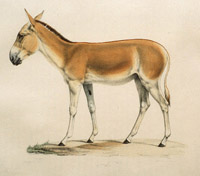
Erforschung biologischer Ressourcen der Mongolei / Exploration into the Biological Resources of Mongolia, ISSN 0440-1298
Date of this Version
2021
Document Type
Article
Citation
Erforschung biologischer Ressourcen der Mongolei (2021) band 14: 361-377.
Abstract
In this study, was aimed at 1) collecting baseline data in order to study distribution of moths in the future, and 2) estimating diversity of moths distributed in central and northern Mongolia. For this study were collected specimens from 266 species, representing 15 families from 7 study sites during 92 nights spanning over two years. Samples were collected around the research stations Tunkhel and Khonin Nuga in Selenge Aimag, Ikhtamir in Arkhangai Aimag, Mungunmorit and Undurshireet Soums in Tuv Aimag, as well from Shargamorit near Ulaanbaatar, the capital of Mongolia, and from Tsenkhermandal Soum in Khentii Aimag. So were found more species at Tunkhel (121) and Khonin Nuga (100) compared to the other five study sites; also the diversity measures were higher at these sites and moth communities were most similar to each other.
Included in
Asian Studies Commons, Biodiversity Commons, Environmental Sciences Commons, Nature and Society Relations Commons, Other Animal Sciences Commons


Comments
Copyright 2021, Martin-Luther-Universität Halle Wittenberg, Halle (Saale). Used by permission.